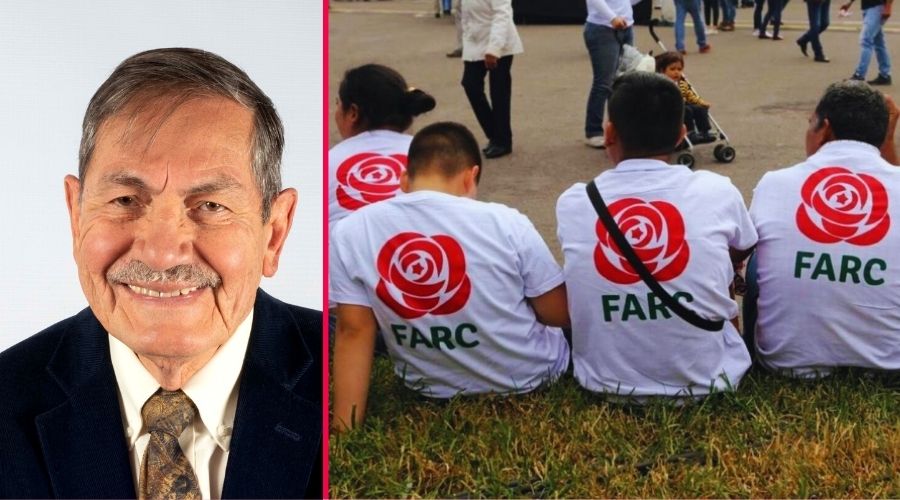Originally published in Confidencial Colombia
The Constitutional Court, on January 27, 2022, declared the Unconstitutional State of Affairs due to the constant and massive violation of fundamental rights to life, personal integrity, security and peace that more than 13,000 former FARC combatants have faced upon reincorporation into civilian life, due to the lack of security guarantees in the territories and non-compliance with the Peace Agreement by the State.
According to Judge Cristina Pardo, the Plenary Chamber took into account the high number of signatories of the peace agreement who have been killed – 303 by the end of 2021 according to the United Nations – and the low level of implementation of the norms on security guarantees for demobilized combatants.
For the Court, the assassination of just one of the people who signed the Peace Agreement has a disproportionate effect and requires immediate and coordinated action by the entire State. It must be taken into account that in exchange for the demobilization and disarmament that already took place and was fully complied with by the former FARC combatants who committed to reincorporate into the social fabric, the minimum they expect is to be able to make the transition in a reliable and safe manner for their lives and personal integrity.
According to the ruling, the Government created a parallel institutional framework that set aside two entities agreed in the Peace Accord that would have been key to address these risk situations: the High Level Instance and the National Commission for Security Guarantees, in which the signatories of the process participate. This parallel institutionality generated an institutional confusion that blocked the way for different authorities not to assume full responsibility for their actions.
What are some of the 17 general orders that the State must comply with?
What must be done to overcome the unconstitutional state of affairs? The National Government and the Superior Council of the Judiciary must adopt within three months the necessary administrative and financial measures for the operation of the Special Monitoring Chamber of the high court, which will conduct a study verifying compliance with the orders issued by the Court.
The Attorney General’s Office will have to adopt a special mechanism to monitor the sentence, with the support of the Ombudsman’s Office.
The National Government must adopt measures that allow it to comply in a comprehensive, coordinated and articulated manner with the security guarantees provided for in the Final Peace Agreement that have been subject to legal and constitutional development, so as to facilitate the effective and prompt reinsertion or reincorporation into civilian life of those who demobilized and their families, understanding that this contributes to their personal safety.
The National Government shall initiate procedures to ensure that there is sufficient budget for the signatories of the Peace Agreement who exercise political or social leadership activities and who appear before the Comprehensive Peace System, to enjoy the necessary protection.
The National Government, immediately, will have to give compliance to Decree 299 of 2017 on financial, physical and human resources to implement the Strategic Security and Protection Plan. Priority should be given to the municipalities and regions most affected by the violence of armed groups, among which are 25 mentioned by the UN located in the departments of Antioquia, Cauca, Caquetá, Guaviare, Meta, Nariño, Norte de Santander, Putumayo and Valle del Cauca.
Within four months following the ruling, the National Protection Unit, UNP, of the Ministry of the Interior must re-evaluate the risk faced by the signatories of the peace agreement and members of the Comunes party, as well as other persons who are in a similar situation, prioritizing the collective protection schemes of the former Territorial Training and Reincorporation Spaces. If necessary, new schemes must be implemented, making the respective hiring of escorts. In addition, a decongestion plan for risk analysis in the UNP was ordered.
State and government authorities, who are responsible for fulfilling the commitments assumed by the Colombian State in the Final Peace Agreement, must comply with their duties. Their actions must be in accordance with the obligations arising from the legal system. Their language must be assertive, respectful, constructive, empathetic and trust-building so that they do not reinforce social and cultural imaginaries of stigmatization and hatred. To comply with the above, the principles of presumption of extraordinary risk and reversal of the burden of proof and coordination will be rigorously applied, and a detailed analysis of the context will be carried out to avoid dilatory actions that unnecessarily increase the security risk faced by demobilized persons, under the terms of Decree Law 895 of 2017. Differential, human rights, gender, ethnic, territorial and multidimensional approaches must also be taken into account.
Within two months, the Ministry of the Interior, the High Counselor’s Office for Stabilization and Consolidation and the Agency for Reincorporation and Normalization must adopt concrete measures to guarantee the articulation between the Development Programs with a Territorial Approach and the Integral Programs of Substitution and Alternative Development that have been executed asynchronously at the municipal level, in everything related to the security strategy.
It also urged Congress to give “the necessary impetus to develop the contents of the Final Peace Agreement that are still in need of legislative implementation, related to the possibility of materializing the concept of security”.
The Court will verify compliance, through indicators, in a process similar to the one currently underway in the tutela ruling T-025 of 2004, which declared a state of unconstitutionality in the area of forced displacement of persons.
The Colombian State could have avoided this ruling by complying with its duty to implement the 2016 Peace Accords and its obligation to protect the life, personal integrity and security of every former FARC combatant and every Colombian citizen. But no, as always in this country, one has to resort to the high courts in search of making the most fundamental rights real. Let’s see if with this strong sentence, the State finally does what it has to do.

